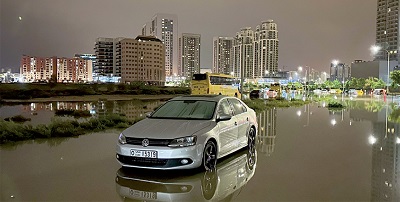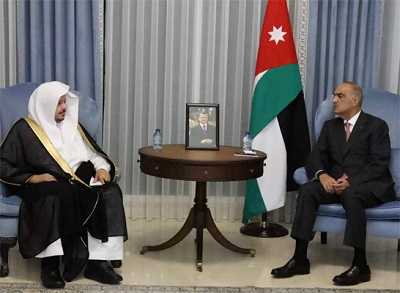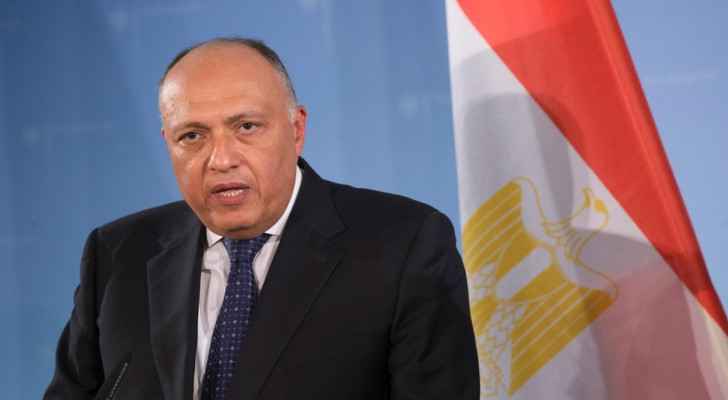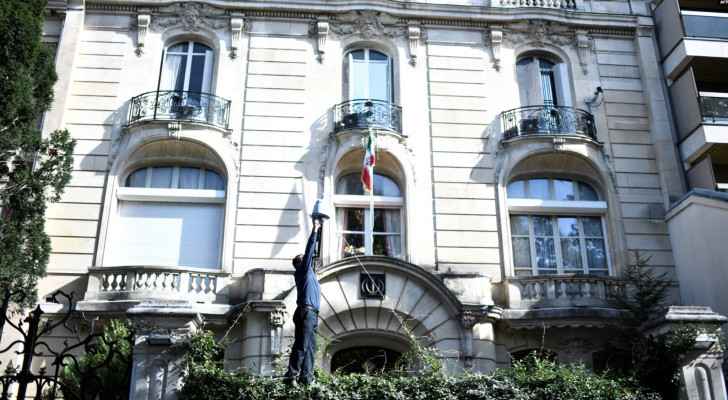Furthering ties - Editorial, The Jordan Times
The visit of Turkish Prime Minister Recep Tayyip Erdogan to Amman for talks with His Majesty King Abdullah came at a critical juncture in the region, one that requires closer cooperation and coordination among regional and world heads of state.
The two leaders stressed the importance of continued coordination between their two countries on issues of mutual concern and ways to boost economic and investment cooperation, highlighting the historical ties between Jordan and Turkey, which mark 70 years of diplomatic relations.
Discussions on how to improve the political, economic, military, defence and social ties between the two countries will continue, no doubt, seeing that there are many different opportunities in these fields.
By working together, the two countries will be better placed to face the danger of terrorism and extremism, which threatens both, and to overcome obstacles.
The Turkish leader expressed appreciation for Jordan’s show of solidarity during the failed coup attempt last year and said Turkey will continue supporting Jordan’s efforts to protect the holy sites in Jerusalem.
Emphasising the importance of strengthening the two countries’ economic ties, the two leaders stressed the need for the private sectors, in both Turkey and Jordan, to continue their efforts to boost economic cooperation, explore investment opportunities in various fields and increase the exchange of visits and expertise.
A common point of concern is the conflict in Syria, whose repercussions are felt by both Jordan and Turkey, particularly in the form of refugees.
In view of the fact that the two countries shelter large numbers of Syrian refugees, on behalf of the world, the two leaders stressed the need for the international community to increase its support for neighbouring countries to help them cope with the huge, and increasing, economic, social and security pressures posed by the refugee crisis, and stressed the importance of reaching a political solution to the Syrian crisis, through the Geneva process, that meets the aspirations of the Syrian people, preserves Syria’s unity and territorial integrity, ends the bloodshed, suffering and violence, and allows for the return of refugees.
Equally close to home, but perhaps of even greater import, the core issue in the Middle East was also tackled by the two leaders.
His Majesty and the Turkish president reaffirmed the need to resolve the Palestinian issue, stressing the importance of launching serious and effective Palestinian-Israeli negotiations to end the conflict on the basis of the two-state solution that allows for the emergence of an independent Palestinian state on the June 4, 1967, borders with East Jerusalem as its capital, living in peace and security alongside Israel.
New peace negotiations, the two leaders stressed, must have a clear timeline and be based on established international terms of reference.
Iraq, whose territorial integrity is important to maintain, was also discussed by the two leaders who voiced support for Baghdad’s efforts to ensure progress and stability through an all-inclusive political process that guarantees the rights of all components of the Iraqi society.
The two sides also stressed the need for stronger international partnership to counter terrorism and extremism, and more efforts to eliminate the root political, social, and economic causes that fuel this global threat.
Turkey is a large regional economic power that can contribute to economic development in its neighbourhood.
Ankara and Amman share many values and the two peoples enjoy warm relations, strongly promoted by tourism and cultural exchange.
Like-minded perspectives and the shared history can be invested even more for the promotion of a more stable and secure Middle East.
Turkey also has a strong military, and nations from the region and beyond recognise and appreciate the geopolitical weight of the country.
Where Ankara stands on regional issues is critical, as is Jordan’s stand, constantly one of reason and moderation.
As such, coordination and cooperation between the two countries is important in maintaining a sane balance in the region.
Latest News
 Dubai reels from floods chaos after record rains
Dubai reels from floods chaos after record rains Khasawneh, Saudi Shura Council speaker discuss bilateral ties, regional developments
Khasawneh, Saudi Shura Council speaker discuss bilateral ties, regional developments Egyptian Foreign Minister condemns potential Palestinian displacement as 'war crime'
Egyptian Foreign Minister condemns potential Palestinian displacement as 'war crime' Travelers from Jordan advised to confirm flights amid Gulf weather turmoil
Travelers from Jordan advised to confirm flights amid Gulf weather turmoil France summons Iranian ambassador over strikes against “Israel”
France summons Iranian ambassador over strikes against “Israel”
Most Read Articles
- Dubai reels from floods chaos after record rains
- Security Council to vote Thursday on Palestinian state UN membership
- King, Bahrain monarch stress need to maintain Arab coordination
- Khasawneh, Saudi Shura Council speaker discuss bilateral ties, regional developments
- Hizbollah says struck Israel base in retaliation for fighters' killing
- Tesla asks shareholders to reapprove huge Musk pay deal
- Jordan will take down any projectiles threatening its people, sovereignty — Safadi
- The mystery of US interest rates - By The mystery of US interest rates, The Jordan Times
- Princess Basma checks on patients receiving treatments
- Knights of Change launches nationwide blood donation campaign for Gaza